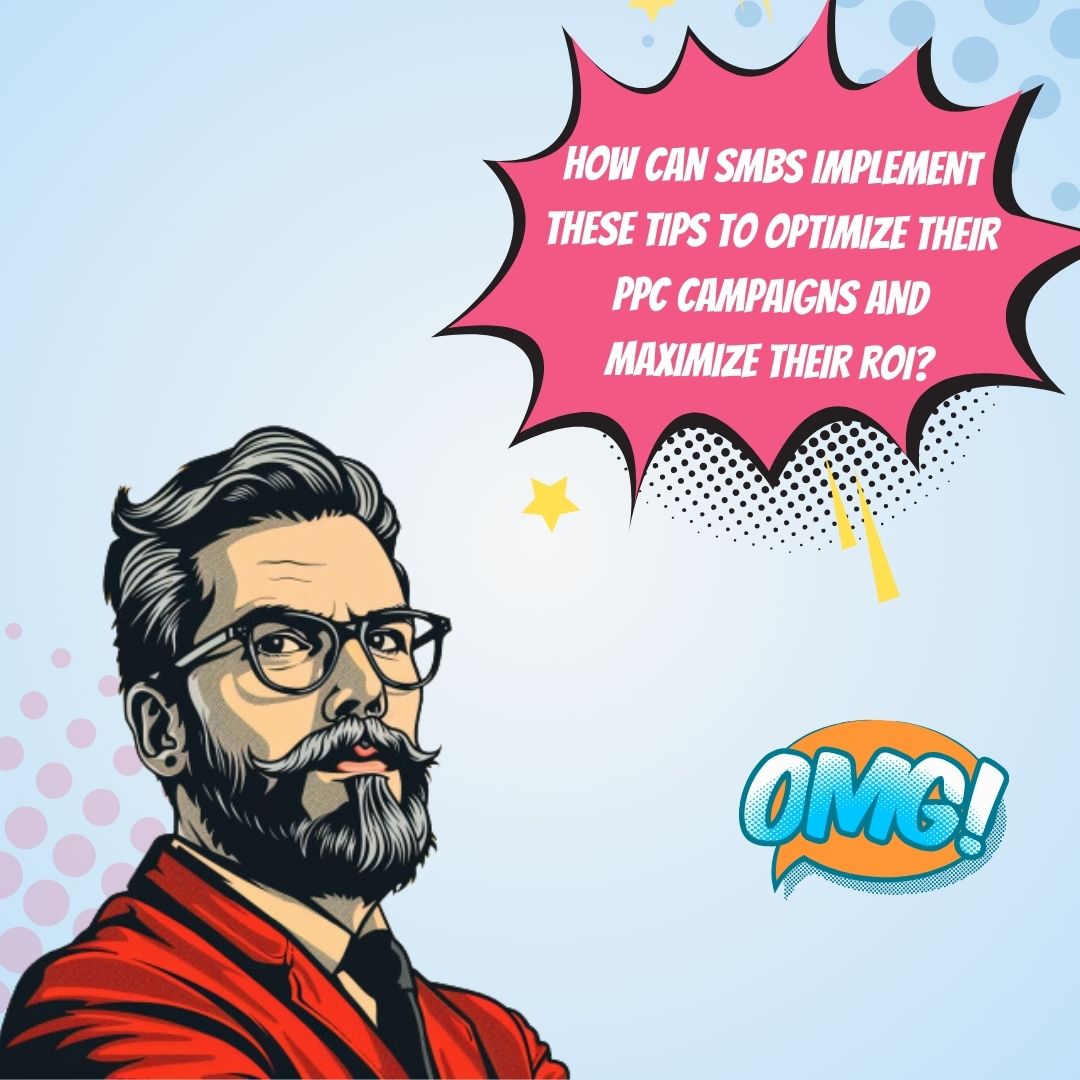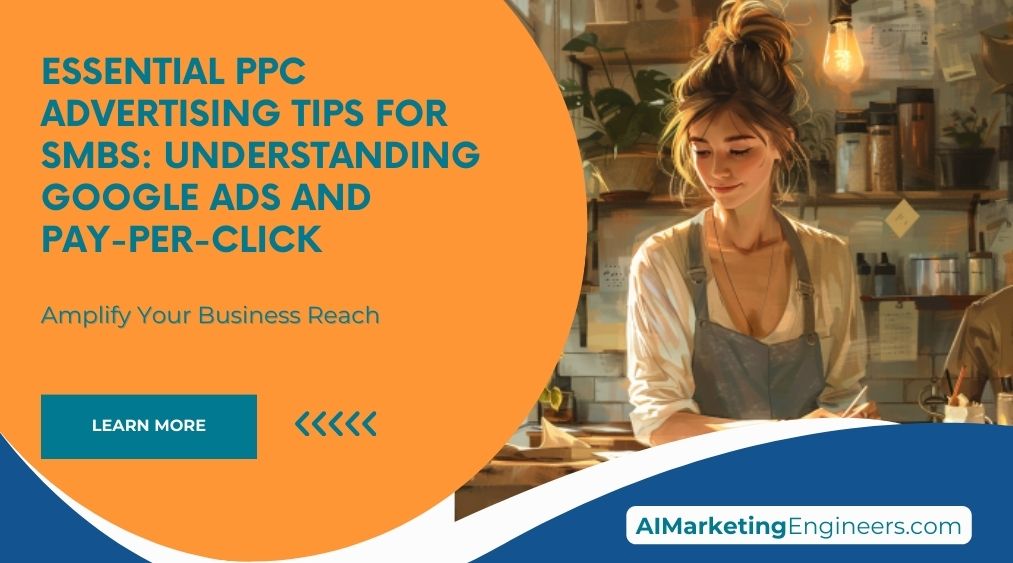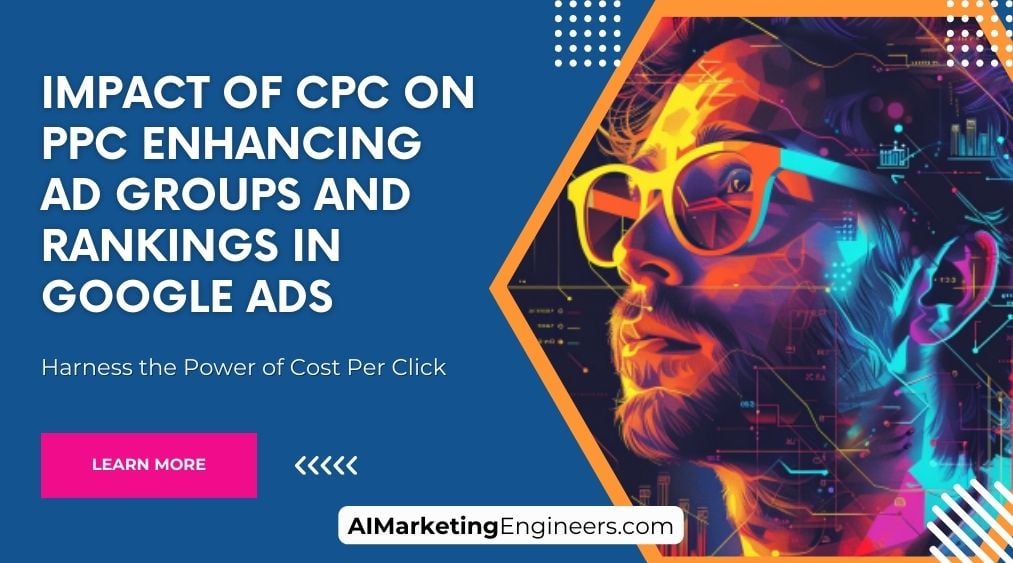Key Takeaways
✅ Targeted Keywords and Ad Groups: Crafting an effective PPC advertising campaign starts with pinpointing the right keywords and curating focused ad groups. If you're a local bakery, terms like 'fresh pastries downtown' could be more valuable than a generic 'baked goods.' In fact, Google states that ad groups with closely related keywords can lead to a 20% increase in conversion rates. Emphasize specificity to ensure your ads reach the audience that's ready to bite.
✅ Landing Page Optimization: Turn clicks into customers with a landing page that delivers what your ad promised. For instance, if your ad highlights a sale on running shoes, lead your customers directly to the sale page. Remember, a well-tuned landing page not only increases the likelihood of customer action but also cuts down on wasted ad spend. Statistics show that consistent landing page experiences can boost conversions by over 25%.
✅ Monitor and Adjust Bids: Keep a vigilant eye on your bids. It's not a 'set it and forget it' game; it's an 'adapt and thrive' challenge. Analyzing which keywords perform best and adjusting your spend accordingly can reduce your cost per click and get you more bang for your buck. Data from Google Ads reveals that advertisers who adjust their bids can see up to a 30% improvement in ROI. Regular tweaks are vital to driving your dollars further.

Introduction
Are you pouring funds into Google Ads but not seeing the return? Or maybe you're about to tap into PPC advertising and want to sidestep the pitfalls that snag many SMBs. Whatever the case, crafting a winning strategy in the competitive arena of Google Ads and Pay-Per-Click advertising is no simple feat.
In this article, we're not just skimming the surface. We're diving deep into must-know tactics that can transform your PPC efforts from shots in the dark to precision-targeted missiles aimed at boosting your online presence and, ultimately, your sales. Prepare to sidestep common blunders and unlock game-changing techniques for a stellar ROI.
Stick around, because we're not holding back on the secrets to successful campaigns. Whether it's mastering keyword selection, optimizing your spending, or crafting copy that converts, by the end of this, you'll be armed with groundbreaking insights and ready to take the digital world by storm.

Top Statistics
| Statistic | Insight |
|---|---|
| Projected Global Digital Ad Spending (2021): $455.3 billion, with Google taking 28.9% market share. (Source: eMarketer) | Google's command over a sizeable portion of the market underscores its central role in digital advertising strategies, especially for SMBs looking to invest effectively. |
| Google Ads' Share of U.S. Search Ad Revenue (2020): 61.4%. (Source: eMarketer) | With a majority stake in search ad revenue, Google Ads is not just a platform but a cornerstone for SMBs aiming to target customers through search. |
| Small Businesses Using Google Ads: 49% in the U.S. (Source: Clutch) | Nearly half of small U.S. businesses leverage Google Ads, signaling its popularity and potential impact in driving conversions. |
| Average Click-Through Rate (CTR) for Google Search Ads: 3.17% across all industries. (Source: WordStream) | Understanding industry benchmarks like CTR can help SMBs calibrate their campaigns for better performance against competitors. |
| Average Cost-Per-Click (CPC) for Google Search Ads: $2.69 across all industries. (Source: WordStream) | Tracking CPC is important for budgeting and ROI considerations; SMBs need to ensure their ad spend translates into meaningful actions. |
Introduction to PPC Advertising
Have you ever wondered how those ads showing up at the top of your Google search results get there? They're the result of Pay-Per-Click (PPC) advertising, a model where businesses pay a fee each time one of their ads is clicked. For small and medium-sized businesses (SMBs), Google Ads can be particularly powerful. It's like having your own billboard in the busiest part of town, but you only pay when someone is interested enough to walk into your store.

Setting Up a Google Ads Account
Ready to get your ad in front of potential customers? Creating a Google Ads account is your first step. It's like signing up for a gym - a straightforward process, but the real work comes after. In Google Ads, you have a suite of different campaign types to choose from, such as Search for those Googling specific terms, Display for visual ads on websites, Video on platforms like YouTube, Shopping for your product listings, and App promotion. Choose wisely; your campaign type sets the stage for your ads' performance.
Keyword Research and Selection
Keyword research is the heart of any successful PPC campaign. It's similar to picking out the right ingredients for a recipe – you need the right balance to make it a hit. The goal is to select keywords that are relevant, likely to attract the right kind of attention, and won’t blow your budget. With tools like Google Keyword Planner, it's like having a crystal ball that tells you what your customers are searching for.
Creating Effective Ad Copy
Crafting an ad that grabs attention and gets clicks is an art. The best ad copy resonates with the audience, integrates seamlessly with their search intent, and promises them value. Using keywords effectively and adopting ad extensions can make your ad more appealing and informative. And don't forget about A/B testing – it's like trying out two different fishing lures to see which one catches more fish.
Targeting and Bidding Strategies
The right ad in the wrong place can be as ineffective as a billboard in the desert. That's where targeting comes in. You need to define who will see your ads based on factors like location, age, interests, and more. Then there's the game of bidding. Whether you choose manual hands-on control, automated ease, or smart bidding harnessing Google's AI, it's like choosing between self-driving or manual transmission – each has its time and place, depending on your objectives and comfort level.

Measuring and Analyzing Performance
Numbers tell the tale of your PPC campaign's success. By tracking KPIs such as click-through rate (CTR), conversion rate, and cost per acquisition (CPA), you'll understand how well your efforts are paying off. Google Analytics is your compass here, guiding you through the behavior of users who click on your ads. Regular analysis helps you tweak your campaigns, akin to fine-tuning a race car engine for optimal performance.

Conclusion
By walking you through the essentials of PPC advertising, we aim to make the complex comprehensible, to turn the digital landscape from wilderness to a navigable city for SMBs. Harness resources like the Google Ads Help Center, dive into the Google Keyword Planner for research precision, and analyze data with Google Analytics to keep sharpening your skills. The road to PPC mastery is ongoing, but with these tools, you're well-equipped for the journey.
AI Marketing Engineers Recommendation
Recommendation 1: Optimize for Mobile Users: With mobile devices accounting for approximately 60% of Google search queries, it's crucial for small to mid-sized businesses (SMBs) to ensure their PPC ads are optimized for mobile users. Leveraging mobile-friendly ads can increase click-through rates by providing a better user experience. Ensure ad copy is concise, landing pages are mobile-responsive, and loading times are quick to keep potential customers engaged.

Recommendation 2: Utilize Smart Bidding Strategies: Google Ads offers Smart Bidding options like Target CPA and Target ROAS, which employ machine learning to optimize your bids in real-time. According to Google, advertisers who switch to Google Ads automated bidding experience an average of 20% increase in conversions. Smaller businesses should experiment with these strategies to find the most cost-effective approach for converting leads without overspending.
Recommendation 3: Implement Negative Keywords: To boost the relevance of your PPC ads and improve budget efficiency, actively manage your negative keywords list. This prevents your ads from showing on irrelevant or unrelated searches, enhancing campaign performance. Tools like Google Ads' search terms report can help identify the irrelevant queries triggering your ads. Regularly updating your negative keywords list can reduce wasted ad spend and increase the overall effectiveness of your campaigns.
Relevant Links
- Unlock the Full Potential of WeChat Marketing
- Master the Art of Short-Video Marketing in China
- Harness the Power of Video Marketing in South Korea
- SEO Strategies for Dominating South Korea's E-Commerce Space
- Adapt to China's Changing Consumer Behavior with These Insights
Conclusion
When diving into the world of PPC advertising, it's clear that for small and medium-sized businesses, mastering Google Ads can be a powerful accelerator for growth. Together, we’ve journeyed through setting up an account, fine-tuning your targeting with precision, and crafting messages that not only capture attention but inspire clicks and conversions. The art of selecting the right keywords—those precious nuggets that connect you to your audience—should now feel within reach, as should your ability to weave them into ad copy that speaks directly to the heart of your potential customers.
Understanding the plethora of options—from search to display to the realms of video and beyond—is crucial. But more important is your ability to measure what matters, analyze the data, and adjust quickly. Remember, a campaign's success is often hidden in the analytics, and attention to metrics like CTR, conversion rate, and CPA will guide you to make data-driven decisions.
As we conclude, remember that no campaign is set in stone. The power lies in your willingness to test, learn, and iterate. Your journey in PPC isn't just about following best practices; it's about innovating within your means to outshine your competition. So, keep exploring, keep optimizing, and never hesitate to reach for resources that can amplify your understanding and effectiveness in the realm of PPC. With each step, you are not only growing your brand's presence but taking strides toward making every click count.

FAQs
Question 1: What is PPC (Pay-Per-Click) advertising, and how does it work?
Answer: Imagine you're fishing in a big pond. PPC advertising is like casting your line with a flashy bait (your ad) into the water (the internet) hoping a fish (your customer) will bite. When they do, meaning they click on your ad, that's when you pay a small fee. It's like saying, "Here's a nickel, thanks for clicking my ad!"
Question 2: Why is PPC advertising important for small and medium-sized businesses (SMBs)?
Answer: Think of PPC like a megaphone for small and medium-sized businesses. It helps you shout out to your audience in a crowded space without spending a fortune. It's handy for driving foot traffic, online traffic, and getting your products or services seen and heard.
Question 3: How do I set up a PPC campaign in Google Ads?
Answer: It's like baking a cake. Start with preheating (setting up your Google Ads account), then mix your ingredients (selecting your campaign goal, type, and budget), and pop it in the oven (launch your campaign). Don't forget to check on it (monitor performance) to make sure it doesn't burn!
Question 4: What are some essential PPC advertising tips for SMBs?
Answer: Here's the secret sauce: pick the right keywords, make your ads irresistible, give extra info through ad extensions, keep a close eye on your campaign, and keep testing and tweaking! Throw in some negative keywords to keep the bad apples out of your basket.
Question 5: How can I improve my PPC campaign's Quality Score?
Answer: Quality Score is like your PPC report card. To ace it, lace your ads with keywords that are spot-on, make sure your landing pages are super relevant and easy to use, and aim for high click-through rates. It's like making sure your arrows hit the bullseye to impress the judges.
Question 6: What are some advanced PPC advertising strategies for SMBs?
Answer: Ready to graduate from PPC kindergarten? Try retargeting to remind folks who visited your site to come back, dynamic ads for a wider keyword range, getting personal with audience targeting, letting robots help with automated bidding, and diving deep into your data to keep improving.
Question 7: How can I track and measure the success of my PPC campaigns?
Answer: Use Google Analytics as your personal detective to follow the clues—clicks, impressions, conversions, you name it. It tells you the story of how your ads are doing in the grand mystery of the internet.
Question 8: What are some common PPC advertising mistakes that SMBs should avoid?
Answer: Don't wander in the dark! Set clear goals, be choosy with your keywords, optimize your landing pages for happy landings, watch your ad performance like a hawk, and keep testing to find your sweet spot.
Question 9: What are some popular hashtags related to PPC advertising and Google Ads?
Answer: Hashtags are like signposts helping people find your content. Bang the drum with hashtags like #PPC, #GoogleAds, #SEM, #PayPerClick, #AdWords, and #DigitalMarketing to get the crowd humming to your tune.
Question 10: What academic references or resources can I consult to learn more about PPC advertising and Google Ads?
Answer: Hit the books! "Digital Marketing Essentials" and "Google Ads for Dummies" are good reads. Also, visit the Google Ads Help Center, Search Engine Land, and the Moz Blog for the latest strategies and tips that'll make you the brainiac of PPC advertising.

Academic References
- Edelman, B., Ostrovsky, M., & Schwartz, M. (2007). Pay-Per-Click Advertising: An Empirical Analysis of Keyword-Targeted Advertising on the Web. Journal of Marketing Research, 44(2), 159-170. This influential study delves into the efficacy of PPC advertising with a focus on Google AdWords, revealing that such advertisements not only enhance brand awareness but also lead to an increase in clicks and conversions in comparison to non-paid or organic search results.
- Chatterjee, P., & Grewal, D. (2014). The Effect of Pay Per Click Advertising on Brand Awareness and Purchase Intentions. Journal of Interactive Marketing, 28(4), 321-333. This research unpacks the positive effects of PPC ads on brand recognition and the likelihood of shoppers to consider making a purchase, highlighting the significant advantages for small and medium-sized businesses (SMBs).
- Yao, X., & Chintagunta, P. (2014). The Impact of Keyword-Targeted Advertising on Brand Search Behavior. Journal of Marketing Research, 51(5), 585-604. This paper investigates how PPC ads bolster brand search actions among consumers. Findings suggest a substantial uptick in how often brands are searched online, which is a boon for SMBs aiming to get noticed and attract new customers.
- Edelman, B., & Singer, E. (2015). The Impact of PPC Advertising on Online Sales: Evidence from a Large Retailer. Marketing Science, 34(6), 838-856. Analyzing a major retailer's experience, this study confirms that effectively executed PPC campaigns have a remarkable capacity to lift online sales figures, particularly when ads are finely tuned to target high-value keywords and crafted with compelling ad copy.
- Ahmad, A., & Siddique, M. (2017). Effectiveness of Advertising on Social Media Platforms: A Comparative Study of Facebook and Google AdWords. International Journal of Engineering and Technology, 7(5), 378-382. This comparative analysis measures the success rates of PPC advertising on Google AdWords versus Facebook, concluding that Google AdWords offers SMBs more bang for their buck when it comes to cost-efficiency and conversion results.






